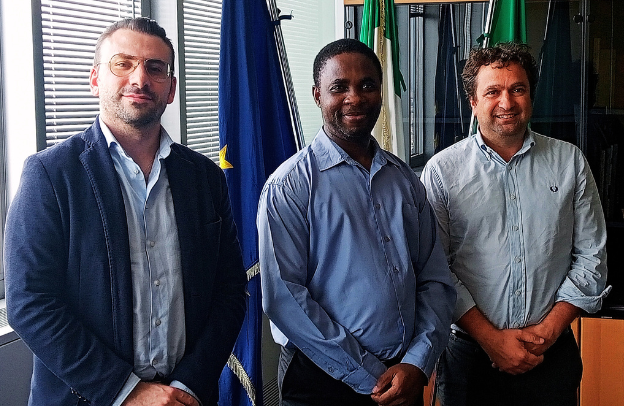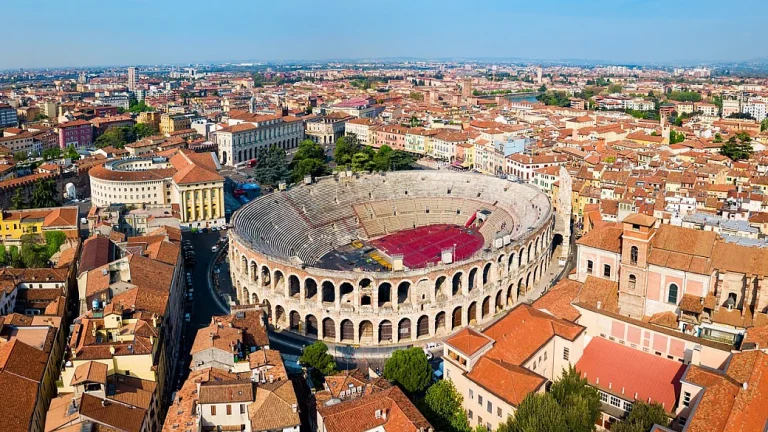Milan and Africa: A Collaborative Dialogue on Diaspora, Business, and Cinema between Italy and Nigeria

Could the untapped potential of Italy’s African diaspora reshape a new frontier of business collaboration between Milan and African businesses? What if the Mattei Plan, Italy’s ambitious development strategy for Africa, could be better stirred as not just a political initiative but a collaborative movement powered by shared interests, cultural exchange, and mutual respect?
Learn How to Leverage Your Story through our Story To Asset Framework.
These questions were at the heart of an introductory meeting held yesterday, June 17, 2025, atop Milan’s iconic Pirelli Tower with Obehi Ewanfoh, the leader of the WeDiasporan organization.
A Meeting in the Sky
On the 30th floor of the Pirelli Tower, overlooking Milan’s bustling central station, a group of 4 men gathered in an introductory meeting to discuss a vision for collaboration between Italy and its African diaspora. The participants were:
- Obehi Ewanfoh – Leader of WeDiasporan, a socio-cultural research organization dedicated to reconnecting people of African descent and fostering meaningful partnerships in our globalized world,
- Simone Orlandi – the Coordinator of Brothers of Italy (Fratelli d’Italia) in the city of Milan and Head of the Secretariat of the Vice Presidency of the Lombardy Region,
- Francesco Rocca – a Milan city councilor and a graduate in Economics and Business Management at the Catholic University of the Sacred Heart in Milan.
- Carlo Brignolo Gorla – an expert on international finance and a leader of the Mattei Plan in Milan.
The meeting was initiated by Carlo Brignolo Gorla and facilitated by Simone Orlandi and Francesco Rocca. The main guest was Obehi Ewanfoh, who traveled from Verona to strengthen ties between Africa and Western organizations, a key part of the WeDiasporan objectives.
See also Bridging Cultures & Economies: A Festival in Valpolicella, Verona
Founded in 2014 in Verona, Italy, WeDiasporan, formerly known as Evideos, was born from a deep commitment to documenting and amplifying the stories of the first African immigrants in Verona and across northern Italy.
What began as a local storytelling initiative has grown into a global platform, now embracing members of the African diaspora from countries around the world, including the UK, the US, Nigeria, and the Caribbean.
Despite this international expansion, WeDiasporan remains firmly rooted in its original mission: to connect people, celebrate shared histories, and build a collaborative, community-driven movement.
At the heart of the movement is Obehi Ewanfoh, whose Podcast, The Obehi Podcast, has featured over 1,000 interviews with professionals from across the African diaspora community.
Through these conversations, Obehi has created a vital space for dialogue, consistently advocating for a deeper, more mutual engagement between African and Western communities.
You might also like WeDiasporan’s Visit to Verona City Hall: How Verona Can Become a Gateway for a New Era of Diaspora Cultural Tourism
His work is a bridge, connecting cultures, fostering understanding, and opening doors to collaboration across borders.
Yesterday’s 40-minute conversation in Milan explored the potential for co-production projects, particularly with Nollywood, Nigeria’s vibrant film industry, and touched on the broader implications of the Mattei Plan.
The discussion also covered sectors like food, fashion, and agriculture, highlighting Nigeria’s rise as a global leader in cassava production, with output surpassing 60 million metric tons, and the international acclaim of Italian wine.
In a particular way, Obehi emphasized the importance of leveraging the African diaspora’s presence in Italy, estimated at over 1.2 million individuals, as a bridge for economic and cultural exchange.
The Mattei Plan: A New Chapter in Italy-Africa Relations
The Mattei Plan, a 5.5-billion-euro initiative named after Enrico Mattei, was designed to strengthen Italy’s ties with Africa through investments in infrastructure, education, and energy.
Prime Minister Giorgia Meloni has positioned the plan as a means to address migration by promoting development in African countries. However, critics argue that the plan risks being neocolonial if it doesn’t meaningfully involve African nations and their diaspora communities in the implementation.
As Obehi has previously emphasized on different other occasions, the lack of Afro-Italian representation in the Mattei plan remains a concern. No one is more invested in Africa’s progress than members of the African diaspora, whose role must never be treated as an afterthought in broader African development initiatives.
As reported by one article, “Italy’s Mattei plan for Africa: a story of Italian political capitalism”, it would have been necessary to consult the governments of African countries, international organizations, local economic operators, and the Italian Parliament.
Organizations like COOPI, a Milan-based NGO, have advocated for the involvement of diasporas in the Mattei Plan, recognizing their unique position to contribute to sustainable development through knowledge transfer and community engagement. “We say ‘yes’ to a Plan for and with Africa. Development is serious business,” said the organization.
However, we believe the Italian authorities are paying attention and should make the right amendments in due course.
Meanwhile, it should be clear that Italy’s pivot toward Africa isn’t new; Prime Minister Giorgia Meloni might be approaching it with a more strategic lens. Past leaders like Romano Prodi, who in 2007 became the first Italian premier to visit the African Union, and Matteo Renzi, who ramped up engagement between 2014 and 2016 by opening new embassies and expanding development aid, laid some important groundwork.
It’s also important to note that Renzi’s diplomatic tour of seven African capitals signaled ambition but lacked long-term structure. Meloni, by contrast, appears to recognize that sustained influence on the continent requires more than symbolic gestures; it demands a coherent, long-range vision backed by concrete policy tools and enduring partnerships.
During the meeting, Obehi emphasized a critical gap: many Africans living in Italy remain largely unaware of the Mattei Plan or the implications it could have for their communities. He then stressed that any meaningful progress hinges on the direct inclusion of African voices, not merely as beneficiaries, but as active participants.
See also Meet Melissa Darville: The New CSO of WeDiasporan Leading with Purpose and Vision
This concern, which he had previously raised in his interview with Carlo Brignolo Gorla, was a driving force behind the meeting itself.
Obehi called for greater transparency and urged that the African diaspora be given greater consideration in both shaping and implementing the plan’s key initiatives, especially as it concerns African patterns which themselves know so well, being fellow Africans.
Culture as a Catalyst for Collaboration
A significant portion of the discussion focused on the role of cinema in bridging cultural gaps. Obehi shared that WeDiasporan is developing a co-production project between Veronese filmmakers and their counterparts in Nollywood, Nigeria’s thriving film industry.
Although the film co-production is still in its early development stages, WeDiasporan is eager to support the initiative, recognizing its potential to benefit local businesses in both Verona and Lagos, Nigeria.
Simone Orlandi acknowledged the potential of cinema to foster cultural understanding and suggested exploring existing African film festivals in Milan as platforms for collaboration.
Francesco Rocca, a Milan city councilor, expressed interest in Obehi’s suggestion of engaging with Nigerian artists, noting their growing influence in the global arts scene. He highlighted the success of Nigerian artists in international markets and suggested that Milan could benefit from similar cultural exchanges.
Turning Vision into Action
The meeting concluded with a commitment to transform discussions into tangible outcomes. Carlo Brignole Gorla remarked, “An interesting meeting because it was practical. In fact, we already have a business event on the agenda to organize,” emphasizing the need for actionable steps.
This initiative aligns with broader calls for the inclusion of diaspora communities in development efforts.
A Shared Future is Possible
The meeting atop the Pirelli Tower symbolized more than just a gathering of minds; it represented the beginning of a collaborative journey between Italy and its African diaspora. By harnessing the strengths of both communities, there is potential to create a partnership that is mutually beneficial and rooted in respect and shared goals.
As the cross-developmental initiatives continue to unfold, the involvement of the diaspora will be crucial in ensuring that it is not merely a top-down initiative but a collaborative effort that reflects the aspirations and contributions of all stakeholders.
The discussions held in Milan are a promising step toward a future where Italy and Africa work together to build a prosperous and inclusive society.
Learn How to Leverage Your Story through our Story To Asset Framework.





